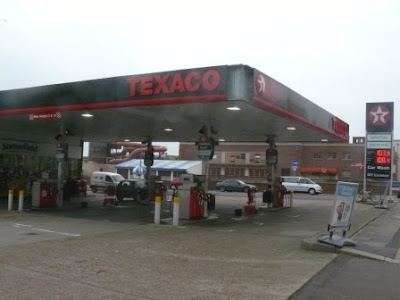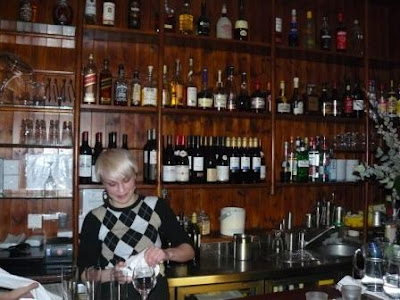
What I had in mind
when I started this series was to try my best to describe how an
ordered (for how long though?!) and rather
amoral society (like Britain – but other countries could fit the description as well) functions.
And things work as long as the
Nanny State manages to provide
rules (laws, instructions, regulations, prescriptions) for most spheres of human life, so that people could be told what is good and bad, and be spared from the effort of judging by themselves.
“If it’s not expressly illegal/forbidden, it means it’s not bad/immoral” – this is the mindset of most Brits, the same as that shared by millions of people from the contemporary supposedly
civilised world.

This is why one can see in the UK little announcemens or large billboards where you are given advice, interdictions and recommendations. Nowhere else is this visible than in the means of public transport.
Messages like these are being poked into your eyes because godless people are more and more less able to understand why something is (more or less strictly)
forbidden, and something else is, on the contrary –
recommendend.
As long as God’s voice in ourselves (our consciousness) has been suppressed ever since early childhood, a human being becomes a sort of
Pavlov’s dog, conditioned to behave ethically only by interdictions and/or sanctions, plus immediate rewards, accessible like those on a supermarket shelves.

This is precisely why these poor civilised Brits, who have thown the Lord away from their hearts, now need a
Big Brother, to constantly tell them what
to do and what
not to do, what is
permitted and what is
forbidden...
Or just to assure them that they are being watched. And that being watched is by no means
an intrusion, an infringement of their rights, but some kind of a
blessing. They are watched
for their own good – so they are told.
These people believe that God’s presence in their consciousness is a hard thing to bear, yet inherently they need
assurances – they fear for their lousy animalic lives, for the safety of their petty ambitions, for the comfort of satisfying their hedonistic aspirations...

Obviously, one doesn’t need God for these, thus Big Brother eventually becomes a
necessity for any godless society. Something (anything but God!) must keep the society working.
The absolute madness of mass abortions, sexual education, gay rights (privileges, in fact), binge drinking, the global warming hysteria, consumerism – all these need to take place under
watchful eyes.
These mad people rejected the eyes of the
Supreme Being (
The Holy Trinity), and replaced them with the look of an amorphous entity, this politically correct
Big Brother.

All these atheists who want ‘
to seize the day’ for their vain delights are foolishly gambling it all on ‘
here and now’, on this absurd assumption that there is no God, there is no afterlife, no Heaven or Hell, no absolute Truth, thus no responsibility.
I am sure that they just say I’m just another madman, but I dare saying to them:
“Beware! This gentle and apparently benevolent Big Brother is just a forerunner of the Antichrist!”I don’t fear any of their labels, as we were warned centuries ago, by the Holy Fathers of the Lords’s only One Church, that such times will come, when the world will be so full of mad people, who will call
madman enyone who refuses to join them in their insanity.
[For all the episodes of this series, and all the posts on this blog go to/Pentru toate episoadele din această serie şi toate postările de pe acest blog mergi la: Contents/Cuprins]

 Nu-mi dau seama însă care o fi psihologia vânzării în acest caz. Dacă este scris în pence preţul pare mai mic sau mai mare? Descurajează ori încurajează oamenii să bage în rezervor?
Nu-mi dau seama însă care o fi psihologia vânzării în acest caz. Dacă este scris în pence preţul pare mai mic sau mai mare? Descurajează ori încurajează oamenii să bage în rezervor?























































